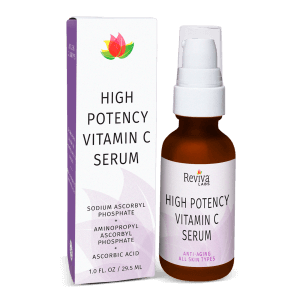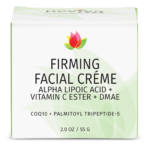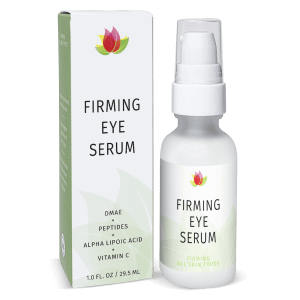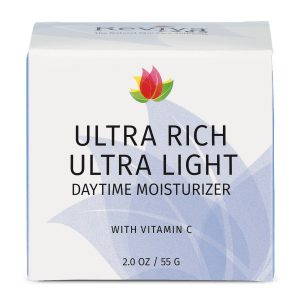Ingredients, Skin Care
The Benefits of Using Vitamin C Serums and How to Choose the Right One
Your skin faces daily battles against pollution, UV rays, and the natural aging process. If there’s one ingredient that dermatologists and skincare experts consistently praise for its ability to fight these aggressors, it’s Vitamin C. This powerhouse antioxidant is more than just a trend—it’s a skincare essential for maintaining a bright, youthful complexion.
Why Your Skin Loves Vitamin C
Vitamin C isn’t just for warding off colds; it’s a critical nutrient for skin health. When applied topically in a serum, it delivers a multitude of benefits that help maintain a radiant, resilient complexion.
Brightens Dull Skin
One of the most sought-after benefits of Vitamin C is its ability to enhance skin radiance. It inhibits melanin production, reducing the appearance of dark spots and hyperpigmentation. This leads to a more even complexion, making your skin look naturally luminous.
Boosts Collagen Production
Collagen is the protein responsible for keeping skin firm and youthful. As we age, collagen production slows down, leading to fine lines and sagging. Vitamin C helps stimulate collagen synthesis, improving skin elasticity and reducing the appearance of wrinkles.
Shields Against Environmental Damage
Every day, your skin is bombarded by free radicals from pollution, UV radiation, and even stress. Vitamin C neutralizes these unstable molecules before they can cause premature aging and damage. This protective effect helps prevent fine lines, dullness, and uneven skin texture.
Improves Hydration and Moisture Retention
Vitamin C serums often include hydrating ingredients like hyaluronic acid, which helps draw moisture into the skin. This keeps the skin plump and reduces dryness, ensuring a smoother and healthier complexion.
Reduces Inflammation and Redness
Sensitive skin types prone to irritation or rosacea can benefit from Vitamin C’s anti-inflammatory properties. It helps calm redness and irritation, making it an excellent addition to a routine for those struggling with sensitive or reactive skin.
How to Choose the Right Vitamin C Serum
With so many Vitamin C serums available, selecting the right one can feel overwhelming. Here’s what to look for to ensure you’re getting the most effective formula.
Look for the Right Type of Vitamin C
Not all Vitamin C derivatives are created equal. The most common and effective forms include:
- L-Ascorbic Acid (Ascorbic Acid): The purest and most potent form of Vitamin C. It delivers the strongest benefits but can be irritating for sensitive skin if used in high concentrations.
- Sodium Ascorbyl Phosphate: A stable, water-soluble form of Vitamin C that’s gentler on the skin while still offering antioxidant and brightening benefits.
- Aminopropyl Ascorbyl Phosphate: A highly stable form that enhances collagen production and fights signs of aging.
- Magnesium Ascorbyl Phosphate: A water-soluble form known for its hydrating and soothing properties, making it great for dry or sensitive skin.
Check the Concentration
The effectiveness of a Vitamin C serum depends on its concentration. Here’s a general guide:
- 4–10%: Suitable for sensitive skin or beginners.
- 10–20%: Ideal for most skin types, balancing efficacy and tolerability.
- Above 20%: Highly potent but can be irritating for sensitive skin.
A concentration around 12-15% is often considered the sweet spot for visible results without excessive irritation.
Ensure It Contains Supporting Ingredients
The best Vitamin C serums don’t rely on Vitamin C alone—they include other skin-loving ingredients to enhance performance:
- Hyaluronic Acid: Provides deep hydration, preventing the dryness that some Vitamin C formulas can cause.
- Ferulic Acid: Stabilizes Vitamin C and enhances its antioxidant power.
- Vitamin E: Works synergistically with Vitamin C to boost skin protection against environmental stressors.
Choose a Stable Formula
Vitamin C is notoriously unstable and can degrade when exposed to air, light, and heat. Look for serums that come in dark or opaque bottles with airtight packaging to ensure longevity. Some advanced formulations include stabilized derivatives that extend shelf life and maintain potency.
Consider Your Skin Type
- Oily or Acne-Prone Skin: Look for lightweight, water-based serums that won’t clog pores. Sodium Ascorbyl Phosphate is a great option as it also has antibacterial properties.
- Dry Skin: Choose a serum with hydrating ingredients like hyaluronic acid or magnesium ascorbyl phosphate.
- Sensitive Skin: Stick with lower concentrations (5–10%) or more stable forms like sodium ascorbyl phosphate, which are less likely to cause irritation.
Avoid Unnecessary Irritants
Since Vitamin C can sometimes be irritating, avoid formulas with harsh additives like synthetic fragrances, parabens, or alcohol. Instead, opt for products with clean, minimal ingredient lists.
How to Use Vitamin C Serum for Maximum Benefits
Apply in the Morning
Vitamin C is best used in the morning because of its antioxidant properties. It helps defend your skin against pollutants and UV damage throughout the day. However, if your skin is sensitive, you can also apply it at night.
Cleanse and Tone First
Start with a clean face to ensure maximum absorption. If you use a toner, apply it before your Vitamin C serum.
Use a Few Drops
A little goes a long way. Apply 3–4 drops to your fingertips and gently press the serum into your skin. Avoid rubbing too aggressively.
Follow with Moisturizer and Sunscreen
Since Vitamin C makes the skin more sensitive to sunlight, always apply sunscreen (SPF 30 or higher) after your moisturizer to protect your skin from UV damage.
Be Patient with Results
Like most skincare products, Vitamin C serums don’t deliver overnight results. You’ll start to notice visible improvements in 4–8 weeks with consistent use.
A Great Option to Try
If you’re looking for an effective, high-quality Vitamin C serum, Reviva Labs’ Vitamin C Serum is a standout choice. It features a triple-dose of Vitamin C with Sodium Ascorbyl Phosphate, Aminopropyl Ascorbyl Phosphate, and Ascorbic Acid, making it both potent and stable. Plus, it contains hyaluronic acid for hydration and botanical extracts to calm and nourish the skin.
The Bottom Line
Vitamin C serums are one of the best investments you can make for your skin. They brighten, firm, hydrate, and protect, making them a true multitasking skincare essential. By choosing the right formulation for your skin type and incorporating it correctly into your routine, you can enjoy glowing, youthful skin for years to come.










